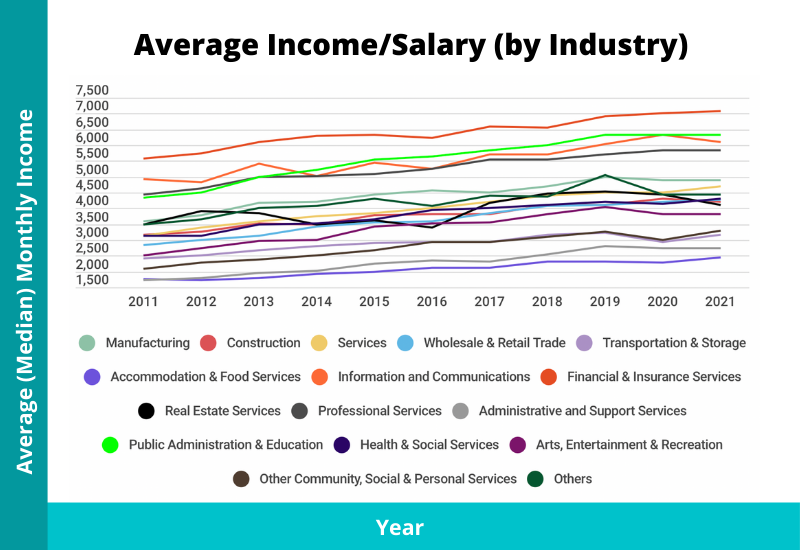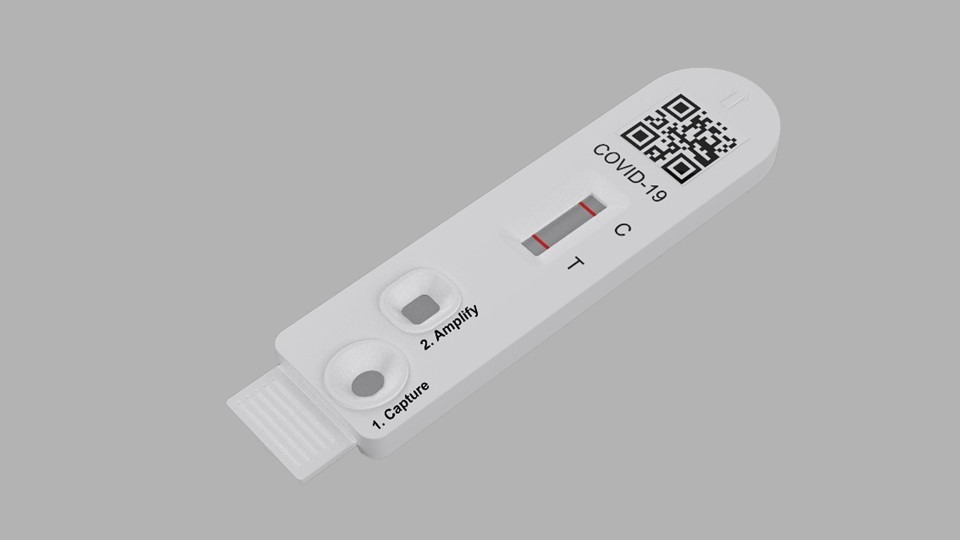Blog
Pre Event Testing: Your Complete Safety Guide

Planning a successful event requires meticulous attention to detail, and in today’s health-conscious environment, pre event testing has become an indispensable component of event management. Whether you’re organizing a corporate gathering, wedding celebration, or community festival, implementing proper testing protocols ensures the safety and well-being of all attendees while maintaining the integrity of your special occasion.
The landscape of event planning has evolved significantly, with health and safety taking center stage. Pre event testing serves as a crucial protective measure that allows organizers to proceed with confidence, knowing they’ve taken every reasonable precaution to safeguard their guests. This comprehensive approach to event safety has transformed from an optional consideration into an essential requirement for responsible event management.
Understanding the various aspects of pre event testing empowers event organizers to make informed decisions about their safety protocols. From cost considerations to implementation strategies, having a thorough grasp of testing requirements helps ensure smooth execution while maintaining the celebratory atmosphere that makes events memorable.
What is Pre Event Testing
Pre event testing refers to the systematic health screening process conducted before gatherings to identify potential health risks among attendees, staff, and vendors. This proactive approach involves various testing methods designed to detect infectious diseases, particularly respiratory illnesses that can spread rapidly in crowded environments.
The primary objective of pre event testing is to create a safer environment for all participants while allowing events to proceed as planned. By identifying potentially infected individuals before they attend gatherings, organizers can significantly reduce transmission risks and protect vulnerable attendees who may be at higher risk for complications.

Modern pre event testing encompasses multiple testing methodologies, including rapid antigen tests, PCR tests, and health questionnaires. The specific testing approach depends on factors such as event size, duration, venue characteristics, and local health guidelines. Some events may require testing within 24-48 hours of the gathering, while others might implement on-site testing protocols.
The effectiveness of pre event testing relies heavily on proper implementation and adherence to established protocols. Event organizers must consider factors such as test accuracy, timing, logistics, and attendee compliance when developing their testing strategy. Clear communication about testing requirements helps ensure maximum participation and effectiveness.
Pre Event Testing Singapore
Singapore has established itself as a leader in comprehensive event safety protocols, with pre event testing singapore becoming a standard practice for various gatherings. The city-state’s approach to event safety reflects its commitment to maintaining public health while supporting the vibrant events industry that contributes significantly to its economy.
Local authorities in Singapore have developed detailed guidelines for event organizers, outlining specific requirements for different types of gatherings. These guidelines address various aspects of pre event testing, including approved testing methods, timing requirements, documentation standards, and reporting procedures. Event organizers must familiarize themselves with these regulations to ensure compliance and avoid potential penalties.
The Singapore model emphasizes flexibility while maintaining safety standards. Different event categories may have varying testing requirements based on factors such as attendee numbers, venue characteristics, and risk assessment outcomes. Corporate events might have different protocols compared to social gatherings, reflecting the unique risks and requirements associated with each event type.
Professional testing services in Singapore have adapted to meet the growing demand for pre event testing solutions. These services offer comprehensive packages that include test administration, result processing, documentation, and reporting services. Many providers offer on-site testing capabilities, making it convenient for event organizers to implement testing protocols without disrupting their event timeline.
Pre Event Testing Singapore Cost
Understanding pre event testing singapore cost is crucial for event budget planning and ensuring adequate resources are allocated for safety measures. The cost structure for pre event testing varies significantly based on several factors, including test type, number of attendees, testing location, and additional services required.
Rapid antigen tests typically represent the most cost-effective option for pre event testing, with prices ranging from moderate to affordable per test depending on volume and service provider. PCR tests, while more accurate, generally command higher prices but may be necessary for certain high-risk events or when greater accuracy is required.
Volume discounts often apply to larger events, making per-person testing costs more manageable for organizers of significant gatherings. Many testing providers offer tiered pricing structures that reward larger orders with reduced per-test costs, helping event organizers optimize their testing budgets while maintaining comprehensive coverage.
Additional cost considerations include logistics, staffing, documentation, and reporting services. Some providers offer comprehensive packages that include these services, while others charge separately for each component. Event organizers should carefully evaluate these options to determine the most cost-effective approach for their specific requirements.
The investment in pre event testing should be viewed as essential event insurance, protecting both the immediate gathering and the organizer’s reputation. While testing costs represent an additional expense, the potential costs associated with event-related health incidents far exceed the investment in preventive testing measures.
Pre Event Testing Wedding
Wedding celebrations present unique challenges and opportunities for pre event testing wedding implementation. These intimate gatherings often involve multiple generations, including elderly relatives and young children who may be at higher risk for complications from infectious diseases.
The emotional significance of wedding celebrations makes health and safety particularly important, as couples want to ensure their special day doesn’t become associated with negative health outcomes for their loved ones. Pre event testing for weddings requires careful balance between maintaining the celebratory atmosphere and implementing necessary safety protocols.

Wedding-specific testing protocols often involve testing key participants such as the wedding party, immediate family members, and vendors who will have close contact with guests. Some couples choose to implement comprehensive testing for all attendees, while others focus on higher-risk individuals or those traveling from distant locations.
Timing considerations for wedding testing are particularly important, as tests must be conducted close enough to the event to be meaningful while allowing sufficient time for result processing and any necessary adjustments to guest lists. Many couples implement testing requirements 48-72 hours before their ceremony, providing adequate time for results while maintaining test validity.
Communication about testing requirements should be handled sensitively, with clear explanations about the rationale behind testing and assurances that measures are implemented out of care for everyone’s well-being. Providing information about testing locations, costs, and procedures helps ensure smooth compliance and maintains positive relationships with wedding guests.
Implementation Best Practices
Successful pre event testing requires careful planning and execution. Event organizers should begin by conducting a thorough risk assessment that considers factors such as venue characteristics, expected attendance, local health conditions, and attendee demographics. This assessment helps determine appropriate testing protocols and implementation strategies.
Clear communication with all stakeholders is essential for successful testing implementation. Attendees need advance notice about testing requirements, including specific test types, timing requirements, acceptable documentation, and procedures for obtaining tests. Providing multiple communication channels and repeated reminders helps ensure maximum compliance.
Logistics planning should address test distribution, result collection, verification procedures, and contingency plans for various scenarios. Event organizers must consider how to handle positive test results, including guest notification, contact tracing, and potential event modifications.
Staff training is crucial for successful testing implementation. All personnel involved in testing processes should understand protocols, documentation requirements, and emergency procedures. Regular training updates help ensure consistent implementation and address any issues that arise during the testing process.
Technology and Innovation
Modern pre event testing benefits from technological advances that streamline processes and improve accuracy. Digital platforms can facilitate test registration, result reporting, and attendee verification, reducing administrative burden while maintaining comprehensive records.
Mobile testing units and on-site capabilities have revolutionized pre event testing by bringing services directly to event locations. This approach reduces logistical challenges for attendees while allowing organizers greater control over timing and implementation.
Integration with existing event management systems helps create seamless experiences for both organizers and attendees. Digital check-in systems can verify testing compliance automatically, reducing delays and improving overall event flow.
Conclusion
Pre event testing has evolved from an emergency measure into a fundamental component of responsible event management. The comprehensive approach to event safety protects attendees while allowing celebrations and gatherings to continue with confidence. Understanding the various aspects of pre event testing, from basic concepts to specific implementation strategies, empowers event organizers to create safe, successful events that meet both safety requirements and celebratory objectives.
Singapore’s leadership in establishing comprehensive testing protocols provides a valuable model for other regions seeking to balance public health protection with vibrant events industries. The investment in proper pre event testing represents not just a cost of doing business, but a commitment to attendee welfare and community health that enhances the overall value and reputation of any event.
As the events industry continues to evolve, pre event testing will likely remain an important tool for ensuring safe gatherings. Event organizers who embrace these protocols and implement them effectively will be well-positioned to create memorable, safe experiences that bring people together while protecting their health and well-being.
Blog
Average Salary in Singapore: 2025 Income Overview

Understanding the average salary in Singapore has become increasingly important for jobseekers, professionals, fresh graduates, and foreigners planning to build their careers in the country. Singapore remains one of the most competitive economies in the world, known for strong job opportunities, progressive wage structures, and a dynamic market that attracts global talent. To make informed career decisions, individuals closely analyze the average salary in singapore, salary benchmarks, industry pay scales, and overall compensation trends. With rising living costs and evolving labour market expectations, a clear understanding of the Singapore pay scale helps both employees and employers align with current standards.
Singapore’s economy continues to grow across technology, finance, engineering, marketing, and healthcare industries, which influences the Singapore average wage and wage distribution across sectors. Whether you are a fresh graduate entering the workforce or a professional evaluating your next job offer, knowing the typical salary in Singapore allows you to position yourself competitively. The government’s transparent reporting of Singapore salary statistics helps individuals understand wage growth, employment income, and the broader salary structure across skill levels.
To provide a complete overview, this guide covers monthly salary in Singapore, average hourly wage, annual income figures, industry comparisons, expat salary expectations, and the overall Singapore wage range across different roles. This semantic and deeply researched analysis ensures you gain accurate, competitive, and up-to-date salary insights.
Singapore Income Level and Wage Structure Overview
Singapore maintains a well-defined wage ecosystem supported by strong economic policy, high productivity, and a demand-driven labour market. The Singapore income level generally varies by average salary in singapore, industry, academic qualifications, and job function. The government and major HR partners frequently release reports covering median wage Singapore, labour force earnings, and wage inequality patterns.
The labour market remains competitive, encouraging employers to maintain transparent Singapore pay structure models. Jobseekers rely on accurate data to negotiate confidently, while companies use salary benchmarks to attract and retain talent. This economic transparency contributes to stable wage growth Singapore, which continues to increase steadily in most sectors.
Singapore Median Salary vs Average Salary
Understanding the difference between the Singapore median salary and the average salary is important for accurate expectations. The average salary in singapore can be influenced by extremely high-earning executives, while the median salary represents the midpoint of all workers. This offers a clearer picture of the standard salary Singapore employees typically earn.
Most HR surveys highlight the median wage to showcase the true Singapore employment salary trends across industries. These insights are crucial for individuals evaluating their competitiveness and alignment with the market.
Monthly Salary in Singapore and Living Wage Insights
The monthly salary in Singapore varies significantly across industries and experience levels. Professionals often evaluate salary packages alongside lifestyle expectations, leading many to compare the cost of living and salary Singapore relationship. With rising accommodation, transport, and food prices, employees increasingly focus on attaining the Singapore living wage, which reflects the minimum income needed to meet basic living standards.
Fresh graduates entering the workforce also consider whether the fresh graduate salary Singapore aligns with living expenses and provides a sustainable start to their careers. Similarly, foreigners look at the Singapore salary for foreigners to gauge whether relocation will be financially rewarding based on compensation and benefits.
Annual Salary in Singapore and Income Distribution
When employers discuss the annual salary in Singapore, they typically include base pay, allowances, bonuses, and performance incentives. Because Singapore follows a structured reward culture, employees often receive additional payouts through bonus cycles, which influence total yearly compensation.
Additionally, the country monitors income distribution closely. Income distribution Singapore and wage inequality Singapore are frequently discussed topics, as they reflect gaps between higher-income professionals and lower-paid workers. Policymakers continue to address these gaps, ensuring fair opportunities across the workforce.
Industry average salary in singapore Breakdown
Different sectors follow unique pay scales according to skill demand, workforce shortages, and economic competitiveness. Here is a semantic breakdown of major industries and their respective compensation trends:
Singapore Tech Salary
The tech sector continues to offer some of the most competitive salaries in the country. The Singapore tech salary ranges from entry-level developers to senior IT leaders who command very high compensation. Demand for cybersecurity specialists, cloud engineers, AI developers, and data scientists drives strong wage growth.
Singapore Finance Salary
The finance sector remains a top-paying industry with strong opportunities for bankers, analysts, wealth managers, and corporate finance specialists. The Singapore finance salary structure includes high bonuses, making total compensation among the highest in the region.
Singapore Healthcare Salary
Healthcare professionals, including doctors, nurses, therapists, and specialists, contribute to a continuously expanding sector. The average salary in singapore reflects increasing demand, while senior doctors and medical consultants earn significantly higher.
Singapore Engineering Salary
Engineering remains a key pillar of Singapore’s infrastructure and industrial development. The Singapore engineering salary varies by specialization, such as civil engineering, mechanical engineering, software engineering, and precision engineering roles.
Singapore Marketing Salary
Marketing has evolved significantly, with digital roles seeing rapid wage growth. The Singapore marketing salary depends on expertise in SEO, content strategy, social media management, and performance marketing.
Salary Expectations Singapore for Fresh Graduates
Fresh graduates entering the job market evaluate the Singapore entry level salary to understand how well their academic qualifications align with industry standards. The average graduate income Singapore has increased in recent years due to competition for young talent and the rise of skill-based hiring.
New jobseekers also compare the average worker salary Singapore to see how income typically grows as individuals progress into professional roles. Understanding the average office worker salary Singapore and other entry-level data helps graduates set fair expectations.
Expat Salary in Singapore and Foreign Worker Insights
Foreign professionals frequently move to Singapore for its stable economy and global business environment. The expat salary in Singapore generally depends on expertise, industry, and type of work pass. Skilled workers often evaluate the Singapore salary for skilled workers, which is influenced by global competition and local market needs.
Foreigners also consider the Singapore average family income to assess how their household earnings compare to national standards. Employers typically provide attractive Singapore salary packages that include housing allowances, insurance, and bonuses.
Singapore Salary Guide and Benchmarking for Professionals
Employees and HR teams depend on the Singapore salary guide to determine competitive compensation levels. Professional income varies widely across sectors, and benchmarking helps individuals understand the professional salary Singapore norms they should expect.
Companies also study Singapore corporate salary insights to build effective compensation frameworks and attract top talent. These benchmarks help align salaries with performance expectations, experience, and market demand.
Singapore Average Hourly Wage and Pay Rates
Workers who are paid by the hour follow a different structure from full-time salaried employees. The average salary in singapore is essential for part-time workers, freelancers, and those in service-based industries. Businesses also examine Singapore job pay rates to maintain fair hiring policies and competitive offers.
Singapore Workforce Salary and Labour Market Trends
Singapore’s labour force remains strong due to rising education standards and ongoing economic transformation. The Singapore workforce salary trends reflect progress in digitalization, automation, and innovation across industries. The country’s strong economy ensures stable Singapore labour market salary trends, attracting global investment and talent.
Salary Comparison Singapore and Industry Differentiation
Individuals often compare wages across industries using salary comparison Singapore tools. Whether evaluating high paying jobs Singapore or identifying low paying jobs Singapore, jobseekers look at detailed insights to make informed decisions. These comparisons help professionals navigate their careers effectively, choosing sectors with better growth potential and higher compensation.
Singapore Salary Increments, Bonus Structure, and Payroll Statistics
Annual increments are a major part of the Singapore bonus structure, and companies often evaluate performance annually. These increments contribute to career development and wage progression. Employers also track Singapore payroll statistics to maintain accurate financial planning and ensure workforce sustainability.
Understanding Singapore remuneration levels helps employers determine appropriate salary increments and competitive benefits packages. Employees also rely on these insights to plan their long-term financial goals.
Singapore Salary Overview and Income Trends
Over time, Singapore continues to see positive salary evolution supported by strong demand for skilled workers and sustainable economic development. The country frequently updates Singapore income trends and Singapore economic salary data, ensuring transparency in the job market.
The Singapore salary overview illustrates how different sectors contribute to national income growth. With continuous shifts in job requirements, employees adapt by upgrading their skills to remain competitive within the average salary in singapore range.
Conclusion
The average salary in Singapore reflects the nation’s strong economy, competitive job market, and demand for skilled professionals. By understanding the Singapore income level, wage distribution, salary trends, industry benchmarks, and evolving employment standards, individuals can make smarter career decisions. Whether you’re a fresh graduate, experienced professional, or foreign worker, knowing the Singapore wage range and broader compensation landscape empowers you to negotiate confidently, align expectations, and pursue meaningful long-term growth. As Singapore continues to evolve economically, staying informed about the latest salary insights ensures you remain competitive and well-prepared for future opportunities.
Blog
Cheapest PCR Test Singapore – Budget-Friendly COVID Swab Options

In today’s travel- and health-aware world, locating the cheapest PCR test Singapore without compromising accuracy is a key concern for both residents and travellers. Whether you’re seeking an affordable PCR test Singapore, low cost PCR test Singapore, budget PCR test Singapore or simply a cheap COVID test Singapore, this guide is for you. We also explore what PCR swab test price Singapore means in practice, how to access Singapore COVID test cheap options and what to look for in PCR test promotion Singapore, best price PCR test Singapore, or discounted PCR test Singapore deals.
What does “cheap” really mean for PCR tests in Singapore?
When we talk about the cheapest COVID PCR Singapore, it’s important to define “cheap” in context. Clinics in Singapore routinely offer PCR tests for pre-departure travel, event access or general screening. While standard rates may be around SGD $90 to $150 (or more for express turnaround), truly budget-friendly PCR test Singapore options may bring that cost lower. For example:
- One provider lists a PCR swab test at S$98 for all non-China destinations. iWell
- Another lists standard PCR at S$90 (GST inclusive) at one clinic. Parkway Shenton
- A special “walk-in” package was S$117.7 after GST. Fusion Medical
These figures give a benchmark: any offer significantly below S$90 may qualify as cheap RT PCR test Singapore, but always check what’s included (memo, travel-certified, turnaround time).
Why search for a low-fee PCR test Singapore?
Travel affordability
If you’re flying out and require a cheap pre-departure PCR test Singapore, every dollar counts. Being able to secure an express PCR test Singapore cheap may make the difference between affordable travel and excess cost.
Frequent screening requirement
For people who test regularly (for work, events or personal peace of mind), access to a low rate PCR test Singapore or affordable COVID testing Singapore helps reduce cumulative cost.
Value and verification
When you hunt for the lowest PCR test price Singapore or find PCR test Singapore best rates, you’re not just looking at the number—you should also verify credentials, result turnaround, and whether the test meets the destination country’s requirements if travelling.
What to check before booking your cheap PCR test Singapore
Test turnaround time
Some clinics offer standard turnaround (within 24 hours) while cheap express PCR test Singapore options may cost more but provide results in 6-8 hours. Paying a little extra may be worthwhile if you have tight time windows. For example, one clinic charges S$118 for standard, or S$298 for express. Nuffield Medical
Travel certification / fit-to-travel memo
If you’re booking a cheap travel PCR test Singapore or PCR test for travel Singapore cheap, ensure the test includes the required memo or certificate accepted by your airline/destination. Without it you may face extra cost or rejection.
Hidden or extra costs
Some offers may exclude GST, surcharges for weekend or home-visit collection, or exclude digital certification. A “cheap clinic PCR test Singapore” offer may exclude fit-to-travel memo, express result, or home-sample collection.
Clinic credentials & test validity
When seeking the lowest cost COVID PCR Singapore, ensure the clinic is reputable, the laboratory is accredited, and results are verifiable. An “inexpensive PCR test Singapore” is only valuable if it’s accepted.
Booking window
Many deals labelled cheap walk-in PCR test Singapore may require booking ahead or arriving early. For example, one clinic listed “last registration at … daily”. Tanjong Pagar Medical Clinic
Real-world pricing examples in Singapore
Here are actual rates from clinics offering what could be considered budget-friendly in the Singapore market:
- At one clinic: PCR test at S$90 (normal) and S$238 (express) for pre-departure. Parkway Shenton This counts as a strong value for the headline “cheap PCR test Singapore”.
- At another: Walk-in PCR swab test at S$117.70 net after GST. Fusion Medical
- At a third: PCR Swab Test at S$98 for non-China destinations. iWell
As a result, when you find an offer labelled cheapest COVID PCR Singapore, you’ll want to compare carefully: anything close to or under S$90 is worth strong consideration, assuming service level is acceptable.
How to find promotions & deals
Keep an eye open for “PCR test promotion Singapore” or “PCR test Singapore discounted rates”
Promotions may include discounted testing packages, early-booking deals or travel-bundle offers.
Travel deal bundling
If you’re booking flights or hotels, some travel agencies or clinics may offer cheap PCR test for flight Singapore or PCR test Singapore travel test cheap when bundled.
Corporate or group rates
If you’re part of a group or corporate booking, you might secure an affordable clinic PCR Singapore rate or a budget clinic for PCR test Singapore discount.
Off-peak and walk-in discounts
Some clinics run cheaper rates for walk-ins during off-peak periods and may list cheap walk in PCR test Singapore options; always ask for the “nett” price after GST and hidden fees.
Tips for booking a truly affordable PCR test
- Book early and confirm price: Ask explicitly for the lowest price PCR test Singapore including GST and any memo.
- Specify your destination: If you need a cheap pre-departure PCR test Singapore, the destination country’s required window may affect cost or deadlines.
- Check result timeframe: If you need quick turnaround, you may have to pay extra—so evaluate if you can afford the standard window or need the express.
- Ask for what’s included: Are travel certificates included? Are home visits or weekend surcharges applicable?
- Compare clinics: Use the benchmark of ~S$90 as a good affordable target in Singapore. If you find something significantly lower, check what is traded off.
- Verify result acceptance: Make sure the clinic’s results are accepted by airlines, destinations and Singapore’s own authorities.
Why “budget PCR test Singapore” doesn’t mean compromising quality
Choosing a budget friendly PCR test Singapore or cheap urgent PCR test Singapore does not mean you settle for sub-par service. Many clinics offer standard PCR tests at lower cost simply because they use efficient processes or negotiate bulk lab rates—without cutting test quality. The key is ensuring the lab is certified, the result memo is valid, and turnaround meets your needs.
Summary
Finding the cheapest PCR test Singapore is entirely feasible if you know your requirements and are confident about the clinic’s service. Whether you’re seeking an affordable PCR test Singapore, low cost COVID PCR Singapore, or a budget-friendly PCR swab test price Singapore, your best value tends to be around S$90 (GST incl) for standard pre-departure testing. By doing your research, comparing what’s included, and focusing on trusted clinics, you can access a cheap clinic PCR test Singapore, cheap express PCR test Singapore, or even discounted COVID swab Singapore deal without compromising on quality or result acceptance. In the context of travel or routine screening, these savings add up and help you stay both safe and cost-efficient.
Blog
Jimmy Kimmel – The Face of Late-Night Comedy

If you’ve ever flipped through late-night TV, there’s a good chance you’ve landed on Jimmy Kimmel Live. From sharp monologues to viral sketches, Jimmy Kimmel has become one of the most recognizable hosts in late-night television. He’s not just a comedian; he’s a storyteller, a critic, and sometimes even a voice for bigger social issues.
Who Is Jimmy Kimmel?
Jimmy Kimmel is an American television host, comedian, and writer best known for hosting Jimmy Kimmel Live on ABC since 2003. Before he became the face of late-night, he worked in radio and co-hosted several TV shows, slowly building his way to stardom.
Kimmel’s early days were far from glamorous. He started as a radio host, jumping between local stations before making his mark on television. His first big break came as co-host of Win Ben Stein’s Money on Comedy Central, which even earned him an Emmy. Later, he teamed up with Adam Carolla for The Man Show, a bold comedy program that gave him national recognition.
Jimmy Kimmel Live – ABC’s Late-Night Stapl
When Jimmy Kimmel Live debuted in 2003, ABC wanted a show that could rival the likes of Letterman and Leno. Kimmel brought a different energy: casual, unpredictable, and sometimes chaotic. The show has since evolved into one of ABC’s biggest hits, filmed right on Hollywood Boulevard in Los Angeles.
The format is simple but effective—an opening monologue, comedy sketches, interviews with guests, and performances from popular musical acts. The show airs weeknights and has built a loyal fanbase both in-studio and online.
The Famous Jimmy Kimmel Monologue
The Jimmy Kimmel monologue is a nightly segment where Kimmel tackles politics, celebrity news, and social issues with humor and wit. It’s often the highlight of the show, mixing satire with heartfelt commentary.
He’s taken on presidents, celebrities, and major world events in these opening routines. His monologues about Donald Trump, healthcare, and cultural topics often go viral, drawing millions of views online. While some praise his honesty, others criticize him for being too political. Either way, his monologues spark conversation.
Jimmy Kimmel Live Guests and Episodes
Jimmy Kimmel Live episodes feature some of the biggest names in entertainment, politics, and sports. From A-list Hollywood actors to rising musicians, his couch has seen it all.
Over the years, memorable interviews have included Barack Obama, Jennifer Aniston, Robert Downey Jr., and countless others. His mix of casual banter and clever questions creates viral TV moments.
Jimmy Kimmel Studio Audience and Tapings
Jimmy Kimmel Live tapings are free to attend, but tickets must be reserved in advance through the show’s website. The studio holds around 200 people, creating an intimate setting for fans.
The audience plays a huge role, reacting to jokes and fueling the live energy. Tapings usually take place in the late afternoon, even though the show airs at night.
Jimmy Kimmel’s Signature Sketches and Segments
Kimmel is known for his creative comedy sketches. These recurring bits often go viral and define the unique tone of his show.
- Mean Tweets – Celebrities read harsh tweets about themselves.
- Halloween Candy Prank – Parents trick kids into thinking their candy is gone.
- Lie Witness News – Random street interviews that expose people pretending to know news stories.
- Unnecessary Censorship – Innocent clips are humorously bleeped to sound offensive.
- Celebrity Pranks – Elaborate setups with Hollywood stars pulling tricks.
- Kids’ Table and Game Night – Family-friendly moments with children and games.
These sketches blend satire with real reactions, keeping fans coming back for more.
Awards, Hosting, and Big Moments
Jimmy Kimmel isn’t just a late-night host—he’s also one of Hollywood’s most trusted award show emcees. He’s hosted the Oscars, the Emmys, and even Golden Globes segments.
One of his most talked-about moments came during the 2017 Oscars, when the wrong Best Picture winner was announced. Kimmel had to manage the chaos live on air, showing his quick thinking under pressure.
Another running gag is his feud with Matt Damon, a fake rivalry that’s been ongoing for years. What started as a joke apology for bumping Damon from the guest list turned into one of late-night’s funniest ongoing bits.
Jimmy Kimmel’s Personal Life
Behind the jokes, Kimmel has a softer side. He married Molly McNearney, the co-head writer of Jimmy Kimmel Live, in 2013. Together, they’ve built both a professional and personal partnership.
Kimmel’s son Billy was born with a congenital heart condition that required surgery shortly after birth. Kimmel opened up about it on air, creating an emotional moment that highlighted the importance of healthcare access. That episode alone made headlines worldwide.
From Early Career to Hollywood Boulevard
Before the fame of late-night, Kimmel built his career alongside Adam Carolla. Their partnership led to The Man Show, which became a cultural talking point in the late ’90s.
He also made waves co-hosting Win Ben Stein’s Money, a trivia game show that won critical praise. These projects helped shape his comedic style before ABC tapped him for their flagship late-night program.
Today, Kimmel’s studio sits right on Hollywood Boulevard, attracting fans from around the world. His show isn’t just entertainment; it’s part of the fabric of Los Angeles culture.
Jimmy Kimmel’s Political Comedy
Jimmy Kimmel uses humor to address politics, often mixing satire with serious points. His jokes about Donald Trump, Congress, and healthcare policy earned both praise and backlash.
While some viewers want late-night shows to stick to light entertainment, Kimmel has leaned into commentary, proving that comedy can spark real conversations.
Jimmy Kimmel Net Worth and Career Longevity
Jimmy Kimmel has built not only a reputation but also a fortune. Estimates place his net worth at over $50 million, with an annual salary of around $15 million from ABC.
Beyond his show, he’s produced specials, voiced animated characters, and made appearances in films and other TV programs. This financial success proves his staying power in an industry where hosts come and go.
Why Jimmy Kimmel Still Matters in Late-Night
Late-night television has changed dramatically, with competition from streaming and social media. But Kimmel has held strong by adapting his humor and connecting with audiences online. His YouTube clips often rack up millions of views, proving he’s just as relevant in the digital space as on TV.
Kimmel’s ability to balance entertainment with sincerity keeps him at the top of the late-night game. Whether it’s a celebrity prank or a heartfelt speech, he continues to shape how viewers experience late-night comedy.
FAQs About Jimmy Kimmel
Where’s Jimmy Kimmel Live taped?
Jimmy Kimmel Live is taped at the El Capitan Entertainment Centre on Hollywood Boulevard in Los Angeles.
How do you get Jimmy Kimmel Live tickets?
Tickets are free but must be reserved in advance through the official show website.
What’s Jimmy Kimmel’s salary?
Reports suggest he earns around $15 million annually from ABC, plus income from side projects.
Who’s Jimmy Kimmel married to?
Jimmy Kimmel is married to Molly McNearney, co-head writer of his show.
Final Thoughts
Jimmy Kimmel has cemented his place in late-night TV. With decades of work, countless viral sketches, and an influence that stretches beyond comedy, he’s more than just a host—he’s a fixture of modern entertainment. His mix of humor, honesty, and unpredictability keeps both studio audiences and millions of viewers at home tuning in night after night.
-
Blog4 months ago
Wedding day horror: Groom falls to death at VOCO Orchard Hotel on Wedding Day
-

 Technology3 months ago
Technology3 months agoEdTech in Singapore: 150+ Companies Driving $180M Digital Learning Revolution
-

 Education6 months ago
Education6 months agoSingapore JC Ranking: A Complete Guide for Students
-

 Food2 months ago
Food2 months agoYi Dian Dian Bubble Tea Singapore: Menu, Outlets & Try Drinks
-

 Blog6 months ago
Blog6 months agoBest of SG with Singapore Rediscover Voucher
-

 Business6 months ago
Business6 months agoWhat to Expect During PSLE Marking Days 2023
-

 Digital Marketing3 months ago
Digital Marketing3 months agoHow to Run Effective Xiaohongshu Advertising Campaigns
-

 Digital Marketing3 months ago
Digital Marketing3 months agoWhy Xiaohongshu Ads Are a Must for Reaching Chinese Consumers





